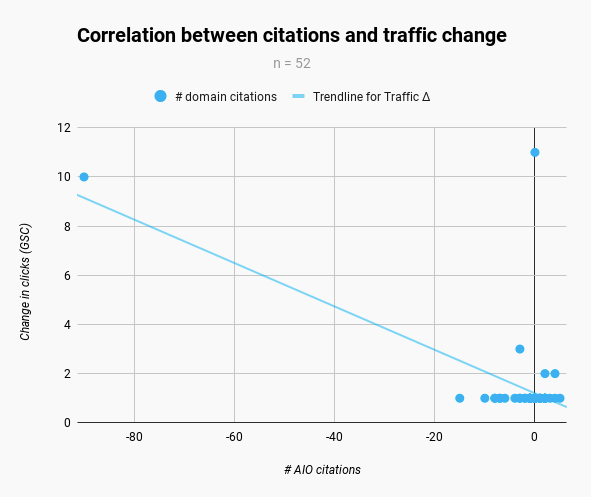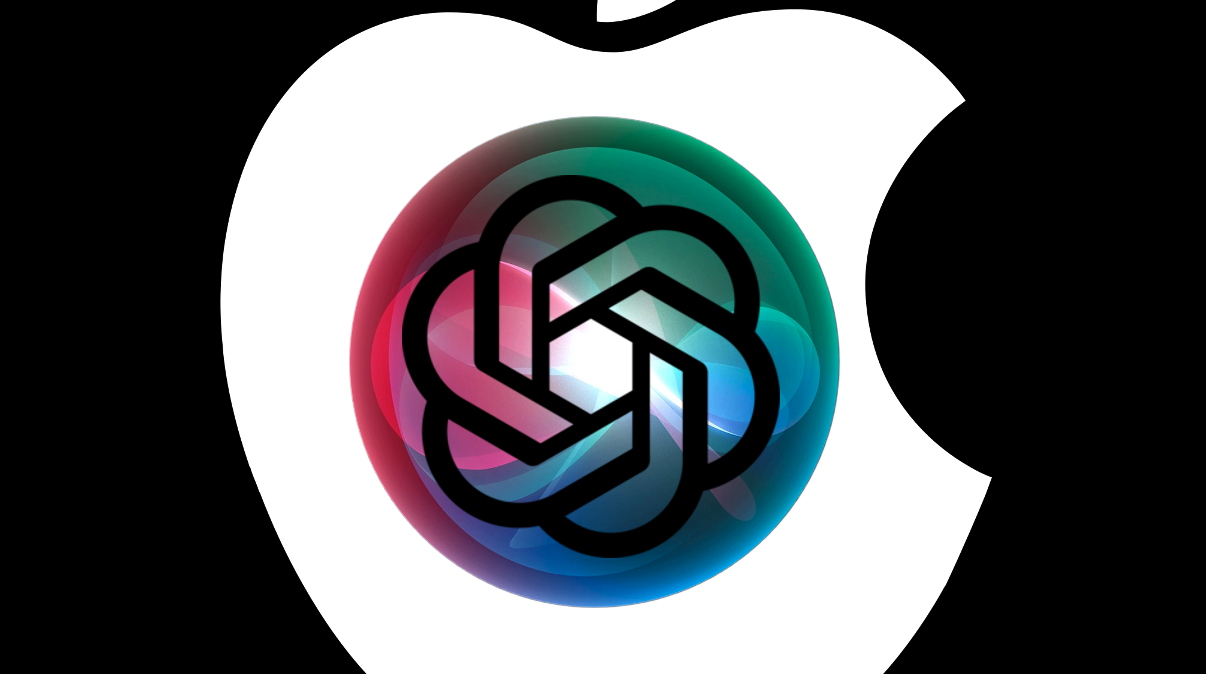Google AIO Impact, Apple AI Search, Big Leak Local

AIOs Not a Traffic Doomsday Weapon
For roughly a year the search world has been anticipating a kind of traffic apocalypse, when AI Overviews (AIOs) rolled out. Several early studies showed the frequency of AIOs in the SERP and extrapolated there would be substantial traffic losses due to their expected "zero-click" nature. For the past several weeks Google has disputed this assessment, saying that AI Overviews are driving more engagement and clicks (implied caveats). There are some new studies that try to assess the impact of AIO post-launch. As we previously discussed, Siege Media found "an increase in impressions, average clickthrough rate (CTR)" for a sample of 43 clients. More recently Kevin Indig published the results of a similarly modest-sized study (1,675 queries) which concluded that AIOs send fewer clicks to cited URLs (9% less). There was a smaller (~3%) loss of organic traffic for non-cited URLs when AIOs appeared. Both studies indicate that AIOs don't radically impact traffic up or down (though 9% isn't nothing). SEO Clarity, in a separate study, makes a number of interesting observations about AIOs and their impact, although doesn't deliver a similar percentage value. Significantly, regarding local it says, "Previously, SGE appeared for local results, but now AI Overviews are no longer shown for these queries based on our sample."

Our take:
- Obviously these are small studies that partly contradict each other. We'll need to see larger samples – I'm sure we will – before drawing conclusions.
- AIOs are showing up far less often than during the Google Labs phase, when they were present 80%+ of the time. Kevin Indig found 42% (healthcare) vs. 15% and 16% in other studies; there's a smaller number in Semrush data.
- The negative PR surrounding AIO errors is a wild card (which may not be fixable). Will Google now show them less; will people avoid them out of distrust?
Apple's Second Bite at Search
Apple has reportedly signed a deal with OpenAI for iOS 18. It had also been talking with Google about using Gemini. (There's speculation that there may still be a role for Gemini on the iPhone.) We don't know much about what the integration will look like (but: speculation) or how it will be branded. Will there be a new brand, a co-brand or will the AI sit behind existing Apple products, such as Siri? It's clear that one of Apple's primary motivations is improving Siri, which now seems pathetic by comparison to the "Scar-Jo" sounding AI assistant unveiled at the ChatGPT 4o/omni launch event. The latter partly fulfills the vision of the "Star Trek computer" that Google has been chasing for a long time. It also shows us what Siri could/should've been. Just as Google was caught off-guard by the 2021 arrival of ChatGPT, Apple has been behind in its development of AI – it miscalculated the competitive and Wall Street significance of the fast-moving technology – forcing it to turn to third parties to play catch up. One of the more interesting possible dimensions of the OpenAI deal is how it might finally bring a more complete search experience (device + apps + web) to the iPhone.

Our take:
- Apple's brand has partly become about privacy. It thus faces a major challenge in how to manage the device-cloud relationship in an AI context.
- There's massive amounts of data tied to the iPhone for its ~1.5 billion users. There are many compelling AI personalization scenarios. But see privacy. 👆
- ChatGPT uses Bing for web search. This raises obvious, intriguing possibilities. We'll have to wait for WWDC to see, but a "search" angle seems likely.
The Big Leak: Local Angle
Marketers are still processing the big Google Search API data leak and its implications for SEO and content strategy. There are potentially 14,000 ranking variables identified in the material. Google has confirmed the documents are authentic but told The Verge not to make "inaccurate assumptions about Search based on out-of-context, outdated, or incomplete information." In other words: nothing to see here. What about the local angle? Local SEO Guide's Andrew Shotland has compiled local/maps mentions in a Google sheet. But they're largely impenetrable to ordinary minds, such as my own. Shotland concludes, "There is very little here to give us any clues about Local SEO." In addition to the original Rand Fishkin and Mike King posts, a nice overview comes from Andrew Ansley at Search Engine Land, which has some limited discussion of local. But perhaps Mike King's Zen conclusion is the best takeaway from all this dizzying information: "make great content and promote it well." (However King provides some specific SEO recommendations in a new post.)

Our take:
- David Mihm will be publishing his take on the leaked documents soon. And we'll have Rand Fishkin on the Near Media podcast this week, talking about the leak and what it means for marketers (out Monday).
- Google has always said it uses hundreds if not thousands of considerations and variables in its algorithm to rank search results. This supports that notion.
- Yet there are some big "Pinocchio moments," such as how much Google relies on clicks and clickstream data. We discovered some of that from the antitrust trial exhibits, but it's much more extensive than previously reported.
Recent Analysis
- Near Memo podcast ep. 158: New SAB local ranking factor; interpreting Google AI tea leaves around search.
Short Takes
- More details on the end of GBP Call History and business chat.
- Why you should ask for reviews by phone on a customer feedback call.
- SterlingSky: Five local SEO strategies for family lawyers.
- Despite the general rollout, not everybody is going to see AIOs.
- It appears you can rank more than once in AI Overviews.
- OpenAI does huge deal with PwC, which becomes biggest customer/reseller.
- The Atlantic and Vox Media sign partnership/licensing deals with OpenAI.
- Facebook is becoming a Hollywood tabloid publication.
- Apple's iOS 18 is supposed to introduce AI ad blocking feature "web eraser."
- Geek out on which of the big tech companies is best positioned "to win" in AI.
Listen to our latest podcast.

How can we make this better? Email us with suggestions and recommendations.

